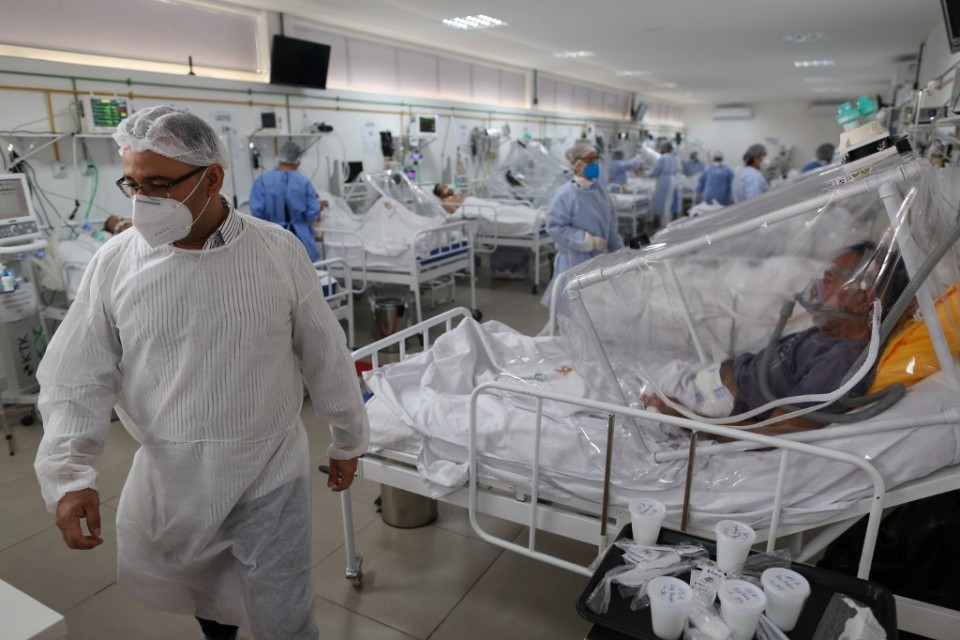
SYDNEY, Australia (AFP) — Brazil’s handling of the coronavirus pandemic has been ranked the world’s worst, while New Zealand topped the class, according to research published by a leading Australian think tank on Thursday.
Sydney’s Lowy Institute assessed almost 100 countries on six criteria, including confirmed cases, deaths and testing metrics.
“Collectively, these indicators point to how well or poorly countries have managed the pandemic,” according to the report by the independent body.
Aside from New Zealand — which has largely kept the virus at bay with border closures and “go early, go hard” lockdowns and testing regimes — Vietnam, Taiwan, Thailand, Cyprus, Rwanda, Iceland, Australia, Latvia and Sri Lanka made the top 10 for their responses.

In bottom place at number 98 was Brazil, closely followed by Mexico, Colombia, Iran and the United States.
Brazil has recorded more than 218,000 coronavirus deaths — a toll second only to that of the United States.
For much of the last year, the two most populous nations in the Americas have been led by nationalist leaders who have actively downplayed the threat of Covid-19, ridiculed mask-wearing, opposed lockdowns and contracted the virus themselves.
China — where the virus first emerged — was not included in the rankings because of what the think tank described as a lack of publicly available data on testing.
Beijing has aggressively tried to manage public perceptions about its handling of the disease as it tries to show its authoritarian system is preferable to democracies, many of which have faltered badly in the crisis.
The Lowy Institute said that there was no clear winner when it came to which political system best handled the pandemic.
Instead, almost across the board, the response has been lacklustre.
“Some countries have managed the pandemic better than others — but most countries outcompeted each other only by degrees of underperformance,” the report said.
Smaller nations — with populations of fewer than 10 million people — did appear to have some advantages.
“In general, countries with smaller populations, cohesive societies, and capable institutions have a comparative advantage in dealing with a global crisis such as a pandemic,” the report said.
Overall, cases have now topped 100 million worldwide and some 2.2 million people have died from the virus since the outbreak began in December 2019.
© Agence France-Presse







